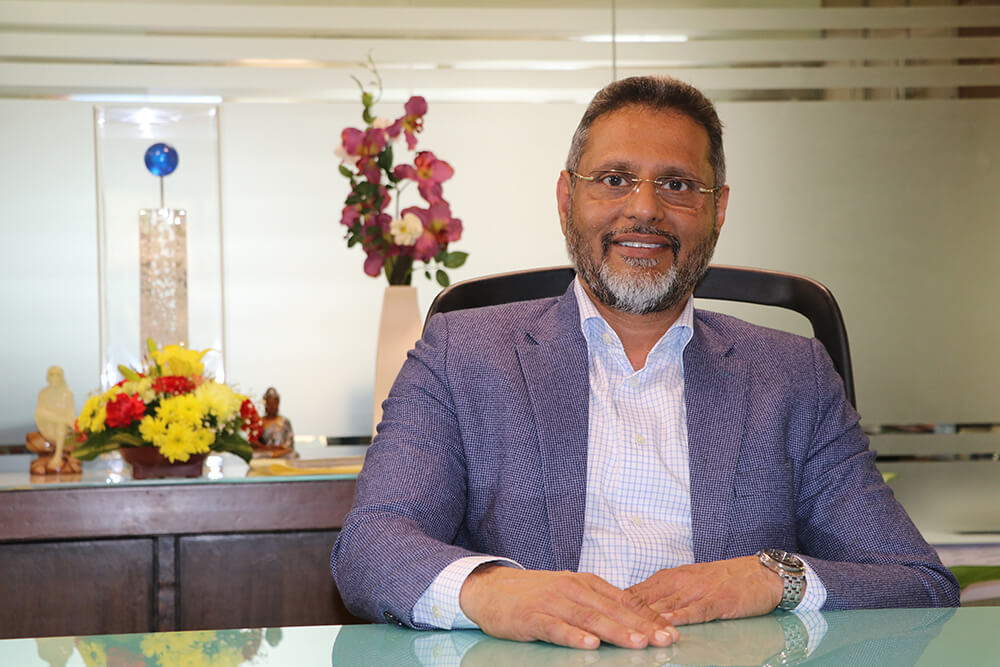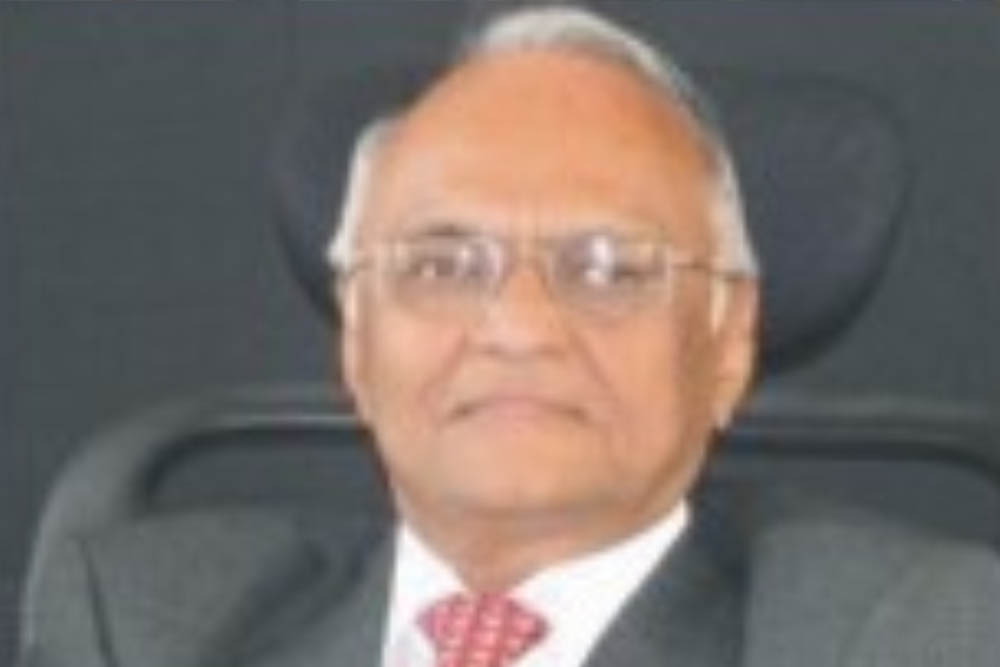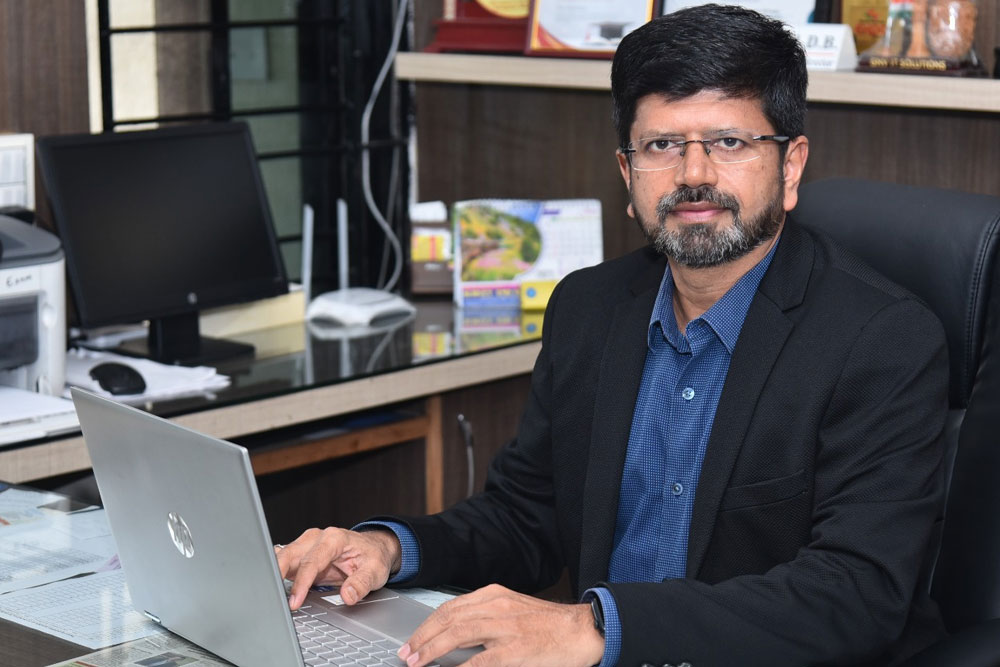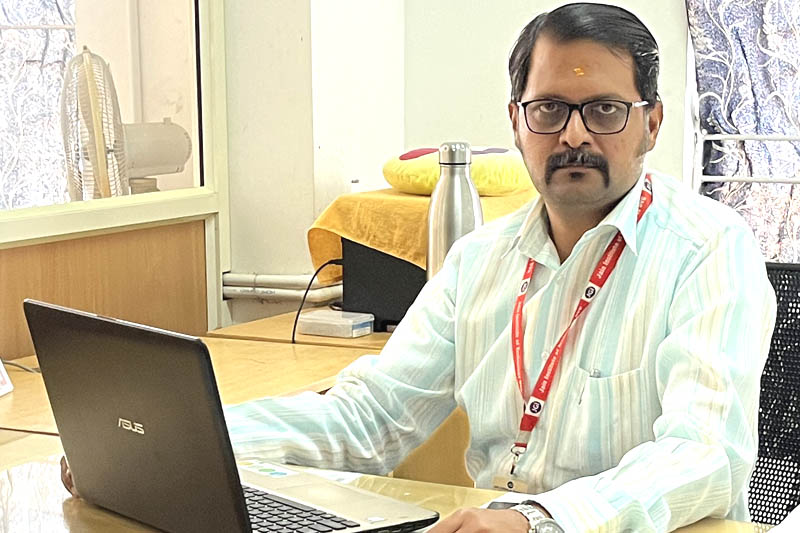 Dr. Chenraj Roychand
Dr. Chenraj Roychand A distinguished Indian educationist, entrepreneur, angel investor and philanthropist with over 40 years of experience...
 Dr. Chenraj Roychand
Dr. Chenraj Roychand  Sri. Achalchand Jain
Sri. Achalchand Jain  Dr. Ganesh D. B.
Dr. Ganesh D. B.  Master of Business Administration (MBA)
Master of Business Administration (MBA)
 Master of Business Administration (MBA) - 120
Master of Business Administration (MBA) - 120
Department of Mechanical Engineering is one of the core branches of JIT started in the year 2011. In 2011 and 2012 the student intake was 60. In 2013 the intake was increased to 120 and 60 students of diploma are getting admitted to the third semester by lateral entry. The department has a blend of highly experienced and young faculty members and belongs to different specializations like production engineering, thermal engineering and design engineering and many active researchers with active involvement in R & D projects. Mechanical Engineering Department is recognized as research centre for carrying out research leading to Ph.D/M.Sc (Engg) by research degree by VTU, Belgavi. Currently there are 16 Scholars pursuing their research work for Ph.D in the department. The department encourages the faculty and students to attend conferences, workshops and other training programs to enhance their technical skills. Many students have been placed in well-known companies such as VOLVO, WEST Line Shipping Services, and VEE technologies Ltd, Seventh sense talent solutions Ltd.

| Degree | Programme | Year | Intake |
|---|---|---|---|
| UG | BE in Mechanical Engineering | 2023-24 | 60 |
High quality competitive and responsible professionals capable of working in multicultural sustainable environment.
MISSIONM1: Provide quality teaching to the students and respond effectively to the needs of the industry and changing world
M2: To prepare professionals who have the motivation and ability for lifelong growth in their careers with multidisciplinary activities.
M3: Achieve excellence in research and development to advance the competitive technology of mechanical engineering.
M4: To prepare graduate engineers who are socially concerned, disciplined and ethical.
PSO1: Graduates will demonstrate the knowledge of applied mathematics and advance software tools for design specification, development such as fabrication, analysis such as testing and operation of physical systems, components and processes involved in Mechanical Engineering.
PSO2: Graduates will demonstrate the knowledge skill attitude to analyse the cause and effect on machine elements, processes, and systems.
PEO1: Graduates be able to execute the work effectively under all sorts of working Environment.
PEO2: Graduate be able to impart technical skills in the areas of Mechanical Engineering.
PEO3: Graduates be able to acquire advanced/ higher education with life long learning process.
PEO4: Graduate be able to have professional ethics and socially responsible.
1. Engineering knowledge: Apply the knowledge of mathematics, science, engineering fundamentals, and Mechanical engineering to the solution of complex engineering problems.
2. Problem analysis: Identify, formulate, review research literature, and analyze complex Mechanical engineering problems reaching substantiated conclusions using first principles of mathematics, natural sciences, and engineering sciences.
3. Design/development of solutions: Design solutions for complex Mechanical engineering problems and design system components or processes that meet the specified needs with appropriate consideration for the public health and safety, and the cultural, societal, and environmental considerations.
4. Conduct investigations of complex problems: Use research-based knowledge and research methods including design of experiments, analysis and interpretation of data, and synthesis of the information to provide valid conclusions.
5. Modern tool usage: Create, select, and apply appropriate techniques, resources, and modern Mechanical engineering and IT tools including prediction and modelling complex Mechanical engineering activities with an understanding of the limitations.
6. The engineer and society: Apply reasoning informed by the contextual knowledge to assess societal, health, safety, legal and cultural issues and the consequent responsibilities relevant to the professional engineering practice.
7. Environment and sustainability: Understand the impact of the professional Mechanical engineering solutions in societal and environmental contexts, and demonstrate the knowledge of, and need for sustainable development.
8. Ethics: Apply ethical principles and commit to professional ethics and responsibilities and norms of the Mechanical engineering practice.
9. Individual and team work: Function effectively as an individual, and as member or leader in diverse teams, and in multidisciplinary settings.
10. Communication: Communicate effectively on complex Mechanical engineering activities with the engineering community and with society at large, such as, being able to comprehend and write effective reports and design documentation, make effective presentations, and give and receive clear instructions.
11. Project management and finance: Demonstrate knowledge and understanding of the Mechanical engineering and management principles and apply these to one’s own work, as a member and leader in a team, to manage projects and in multidisciplinary environments.
12. Life-long learning: Recognize the need for, and have the preparation and ability to engage in independent and life-long learning in the broadest context of technological change.
| Sl No | Document | View |
|---|---|---|
| 1 | Course Outcomes | Click here to view |

Dr.Rajaneesh N Marigoudar
Professor and HoD,
Department of Mechanical Engineering
Jain Institute of Technology, Davangere
Email: rajaneeshmarigoudar@gmail.com
